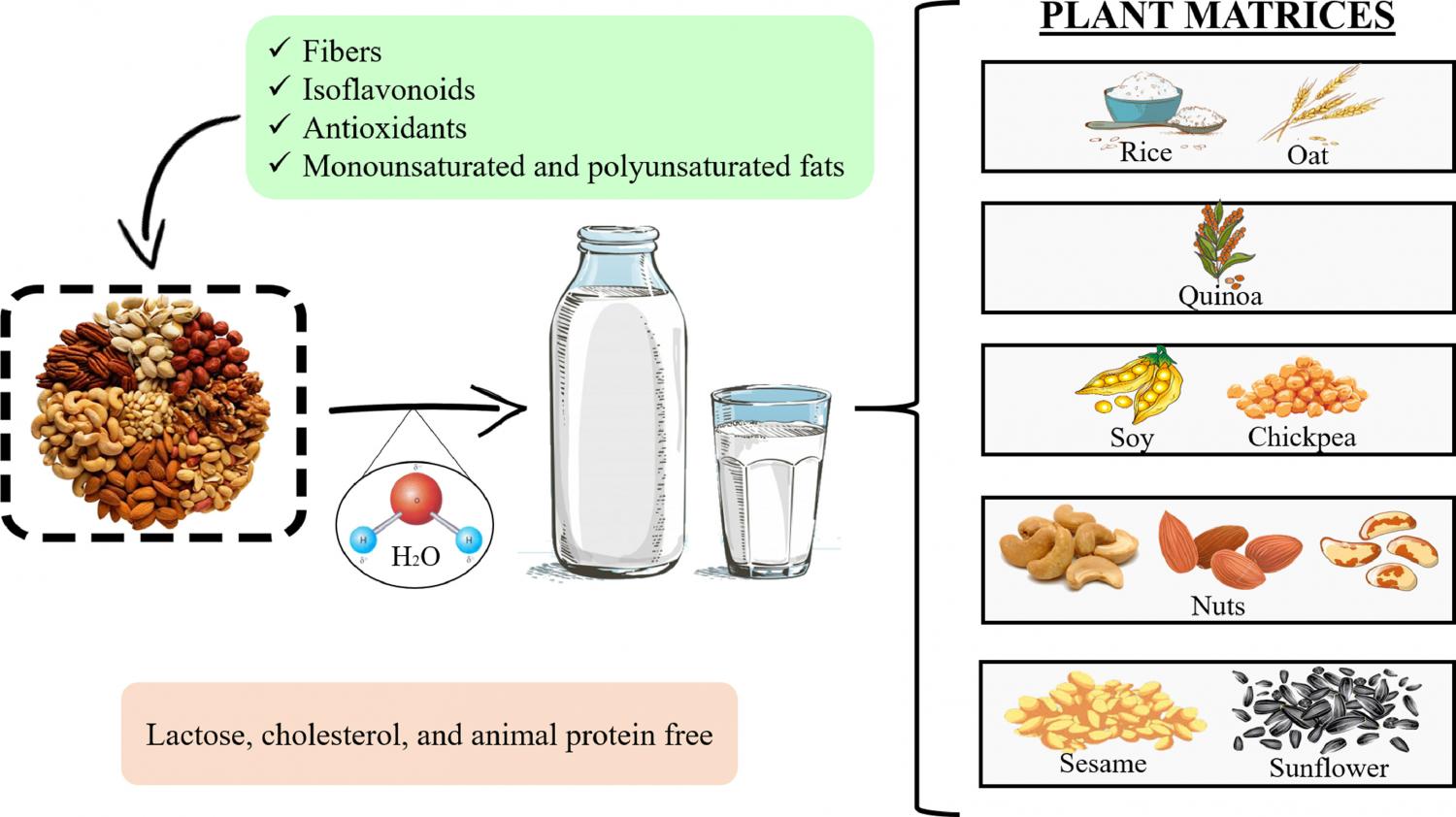
Elsevier, Future Foods, Volume 5, June 2022
Cow's milk is considered a staple in many diets due to its high nutritional value. It contains almost every nutrient that the human body needs. Milk is consumed as a beverage, poured on several foods, and added to coffee, tea, and smoothies. Furthermore, many food products are produced from cow's milk, such as ice cream, yogurt, cheese, butter, cake, desserts, and others. However, it is not a suitable option for everyone for reasons, including lactose intolerance, milk allergy, dietary restrictions, and potential health risks. Plant-based milk substitutes are good options to meet the current demand for non-dairy beverages similar to milk. Also, the production chain of plant-based milk is environmentally friendly and promotes lower carbon emissions compared to dairy products. In this regard, this review discussed the current status of using innovative technologies (ultrasound, high-pressure processing, pulsed electric field, supercritical CO2, ultraviolet radiation, microwave, and ohmic heating) for manufacturing plant-based milk substitutes and their impact on nutritional, sensory, and safety aspects of these emerging beverages.
